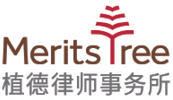The China Banking and Insurance Regulatory Commission (CBIRC) recently issued the Notice on Relevant Matters Concerning Regulating the Trust Business Classification of Trust Companies (Draft for Comment), classifying the trust business into three categories – asset management trust, asset service trust, and public benefit/charitable trust – according to trust purpose, establishment mode and property management content.
Among these, the asset service trust has especially attracted the attention of industry players viewing new opportunities. This article examines specific scenarios, trustee management responsibility, and compliance operation of an asset service trust.
THE DEFINITION

Partner
Merits & Tree Law Offices
In the draft for comment, an asset service trust is defined as “a professional trust services such as wealth planning and intergenerational inheritance, custody, bankruptcy remoteness and risk handling tailor-made by the trust company for its client according to the legal relationship in the trust and the demands of settlors”.
According to the specific content and characteristics of trust service, an asset service trust is divided into five sub-categories: wealth management service trust; administrative management service trust; asset securitisation service trust; risk-handling service trust; and other asset service trust.
The typical difference between an asset service trust and an asset management trust is that the former does not involve fundraising. Also, except for wealth management trusts of incorporated or unincorporated organisations that shall be principally for self-benefit, other sub-categories are subject to no restrictions on the arrangements for other interest-oriented trusts, so they can fully meet asset service needs of the client and beneficiary.
THE OPPORTUNITIES
In the context of the trust industry facing strong regulation, while the traditional real estate sector is in a downturn, the draft for comment provides an opportunity for trust companies to transform their business and return to the original mission of the trust.
Cultivating specialised trust services with differentiation advantages presents an opportunity for trust companies to unleash their strengths and overtake on bends.

Senior Associate
Merits & Tree Law Offices
Development from a family trust and life insurance trust to a more diversified portfolio – including a family service trust, other individual wealth management trusts, and incorporated and unincorporated organisations’ wealth management trusts – further meets market demand for wealth management allocations, giving birth to corresponding asset allocation trust products.
As the trustee is a non-bank financial institution engaged in the capital, currency and industrial markets, the prepaid fund service trust, asset management product service trust, and enterprise/occupational annuity service trust carried out based on its independent third-party operation mode, are all favoured by the market.
With the trust property registration system improved, such product categories as the collateral service trust will further play a crucial role.
In addition, bearing in mind efforts to rescue the ailing traditional property sector, the risk-handling service trust, which gives full play to the advantages of the trust regime, has gradually grown into a strong complementary force for the management and disposal of risk assets.
THE COMPLIANCE
Trust companies have gradually focused on how to achieve compliance in operations, including the specific categories applicable to individual products and corresponding sub-categories.
According to the draft for comment, the trustee should tap deep into the service content – and further rationalise the range of the service recipient and boundaries of rights, responsibilities and interests – so the trust purpose, asset management mode, and the rights, responsibilities and interests of the trust parties match each other, offering trust products that meet client needs with controlled service boundary and liability.
In operational specifics, it’s assumed that “not providing channel services to evade regulatory requirements” does not substantially contravene “providing customised transaction management and financial services”.
Regulatory policies have consistently cracked down on the channel service in recent years, but do not rule out customised service products that meet real business requirements and regulatory compliance requirements, and conform to the agreement between trust parties based on legitimate trust purposes.
At the level of substantial responsibility determination and demarcation, the trustee cannot reduce its legal obligations and liabilities simply by contract. At the contractual level, the trustee should also avoid the “channel clause” and control the risks of parties to the trust through well-defined content and boundary of trust.
THE CHALLENGES
With the advancement of fintech as asset service needs become increasingly complex, trust companies are constantly seeking a balance between efficient service products that allow large-scale operations, and customised products that meet more personalised needs. Especially for trust companies with a basic electronic system platform, the segmented business scenarios and more detailed demands for financial consumer protection pose greater challenges to compliance of online asset management products and data.
Asset service trusts also set higher standards for the asset allocation and management ability of trust companies – as well as their ability to design and operate products to meet the needs of the client and regulatory compliance requirements – making it unsustainable to carry out asset management, or even channel business, under the guise of asset service trusts.
The draft for comment has clarified that the asset service trust business shall not illegally raise funds for the client by means of channel service, active liability, or split and transfer of beneficial rights in the property rights trust.
To ensure lawfulness and compliance of the trust’s purposes, the document also sets requirements for providing substantial fiduciary services, becoming an important guideline for the asset service trust industry.
Li Kailun is a partner and Zhang Yanjiao is a senior associate at Merits & Tree Law Offices

Merits & Tree Law Offices
5, 12/F, Raffles City Beijing Office Tower
1 Dongzhimen South Street, Beijing 100007, China
Tel: +86 10 5650 0900
Fax: +86 10 5650 0999
E-mail: kailun.li@meritsandtree.com
yanjiao.zhang@meritsandtree.com




























